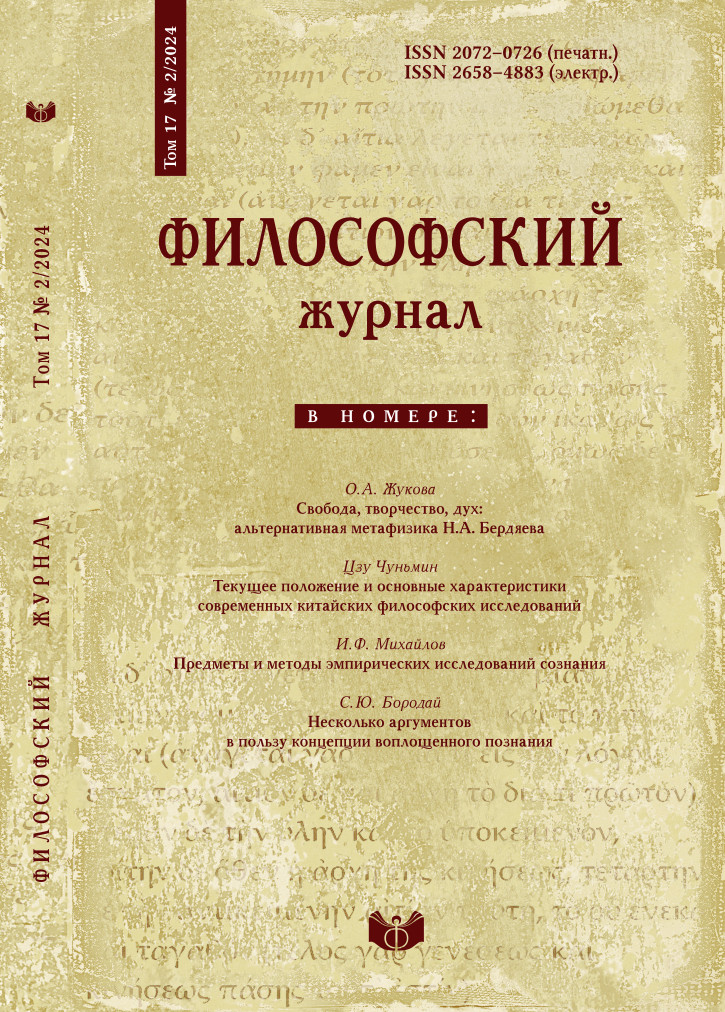“Language barrier” in theories of mind and limitations of the computational approach
DOI:
https://doi.org/10.21146/2072-0726-2024-17-2-122-136Keywords:
computational approach, philosophy of mind, philosophy of consciousness, scientific metaphor, “explanatory gap”, empirical theories of consciousness, methodological limitationsAbstract
This paper examines from a special perspective the problem of methodological limitations of the computational approach in the philosophy of mind and empirical sciences. The main goal is to consistently substantiate the dependence of philosophical “metaphorical dictionaries” on advances in the field of computer science, historical contexts of epistemology, formal and methodological limitations of algorithmic and computational procedures. The key idea is that despite the success of computational models in empirical research, their conceptual level does not allow us to correctly formulate the question of the ontology of consciousness. Computationalism in philosophical theories of consciousness is presented as a practice of word usage, which posits systems of consistent descriptions of the information properties of consciousness and cognitive processes within the framework of certain methodological rules. The limitations of the computational approach are associated with the lack of a scientific theory of subjectivity, the fundamental irreducibility of external properties of consciousness to internal states, and fundamental restrictions on the completeness and consistency of computer mathematics. A classification of several anti-computational programs has been carried out. The article discusses various limitations of computational approaches, such as: the complexity of formalizing nonlinear and hidden processes, the dependence of emotions and intuition on the situational context and individual differences, the difficulty of predicting the emerging properties of autonomous and autopoietic systems, and the limitations associated with non-standard computational processes of quantum and dynamic phenomena. A special role is given to the problem of set-theoretic reductive realism within the framework of mathematical structuralism and some aspects of p-adic number systems as a possible alternative to a “universal language” for the computational philosophy of consciousness.






